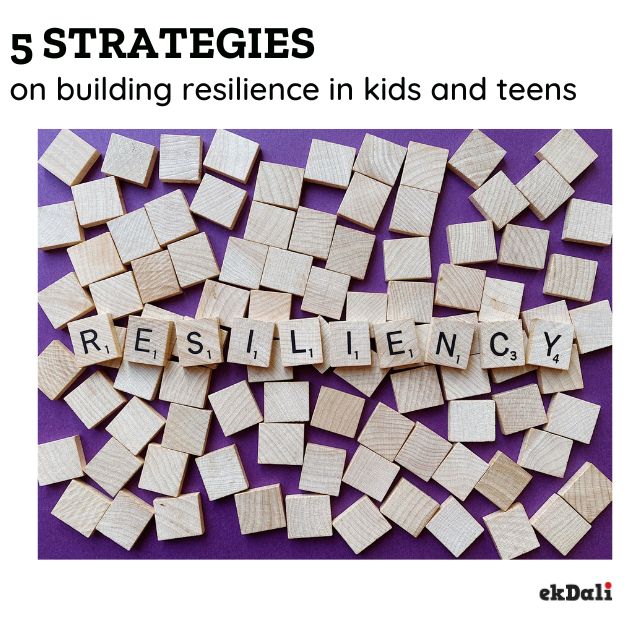Children that are resilient can overcome obstacles, try again, and gain knowledge along the way. Children enter their teenage years and adulthood with the ability to tackle and overcome life's problems if they have the correct degree of self-assurance and fortitude.
However, resilience is not innate in children and teenagers. They have to learn it and put it into practice.
Before you get into the article, we thought you might like to take a look at our growth mindset posters for kids
Here are 5 research based strategies you can use for developing resilience and a growth mindset in kids
-
Building Competence
Being competent means being able to look at challenging circumstances and declare, "I've got this." Competent children and adolescents maintain their composure under pressure and are able to deal with problems when they emerge. For teenagers and kids, feeling competent in one's abilities can boost resilience since, even when something goes wrong, they believe they can do better the next time. So how to build this?
Let them solve problems: It is ok if kids struggle a bit with the problems they are facing, you can watch them struggle and let them figure out their own solutions to the problem. If they solve a problem once then confidence in problem solving increases and they become more resilient
There is no Perfect: Often kids think they are incompetent because they cant do something “perfect”. You can teach them that perfect doesn't exist. Every output is good, but at the same time it is also a work in progress. They can keep working on something, tinker it and keep making it better with each iteration
-
Peer Groups
Kids and teens want acceptance and want to be part of peer groups. Friend groups that help them realise that success in something is not everything. Their capabilities dont define them. You can expose them to multiple classes like music, art, craft, sports and they will form interest groups here.Having mre friends makes them more resilient. If things are going not so well for them in one group or in academics, they know they can fall back to some other activity or group. Just having options makes them more confident
-
Connection
Connection with family:
We are very busy and often we tend to forget the most important aspect of parenting. Building a connection. Connect comes with just free flowing conversations in the house, that are not necessarily task oriented.
We can talk about our day, talk about their day. Talk about important people in our lives . we can talk about important impending events in our life and work.
When we connect more with our children, they realise that they can come to us with their issues. This gives them confidence and builds resilience
Connection with friends:
Permit kids to spend time with their buddies (relatively) unattended. AThey can develop stronger friendships and learn how to handle future relationships if they are allowed to spend time with their friends without constant adult supervision.
-
Building Character
Building character is a very important step. What does building character means. It means letting kids define their values and finding ways to live them. It means us as parents restraining ourselves from comparing them to other kids around them. It means letting them define, articulate and live who they are as individuals and how they relate to their family, peers and society in general
Reading a lot of books and discussing characters in the book can have an impact in the kids defining their own character better
For example: if the kids are reading the Harry Potter Book series, they can discuss various characters and what is good about them. For example, many kids might identify with Luna Lovegood because she is a fiercely independent character , does not come under peer pressure, has a lot of adventures but shies from lime light.
You can use the simple template below
-
What is your favourite character in the book?
-
Why do you like him/ her?
-
Who do you know in real life, who is like him / her?
-
Would you be like to be like this character? If yes what are the steps you can take
-
Coping mechanisms
How frequently do we advise children—or even adults—to "deal with it" or even "get over it," not realising that they might not be able to handle their circumstance? Teens and kids need proper coping skills, which must be taught, in order to be resilient.
Kids and teens need to know that there are mechanisms they can use to help them get out of the situation if they are feeling overwhelmed.
-
They can talk to you about what is bothering them
-
They can reach out to their friends
-
They can go for a walk
-
They can listen to music
-
They can do yoga Asanas
-
They can take a bath
-
They can have a cup of hot chocolate or coffee
-
They can watch a movie
-
They can read something
-
They can get out of any situation if its bothering them
We hope that you enjoyed reading the resilience building strategies. On our website we have lovely growth mindset posters for kids. These are excellent resources to help them learn and reinforce the growth mindset. Do take a look
























